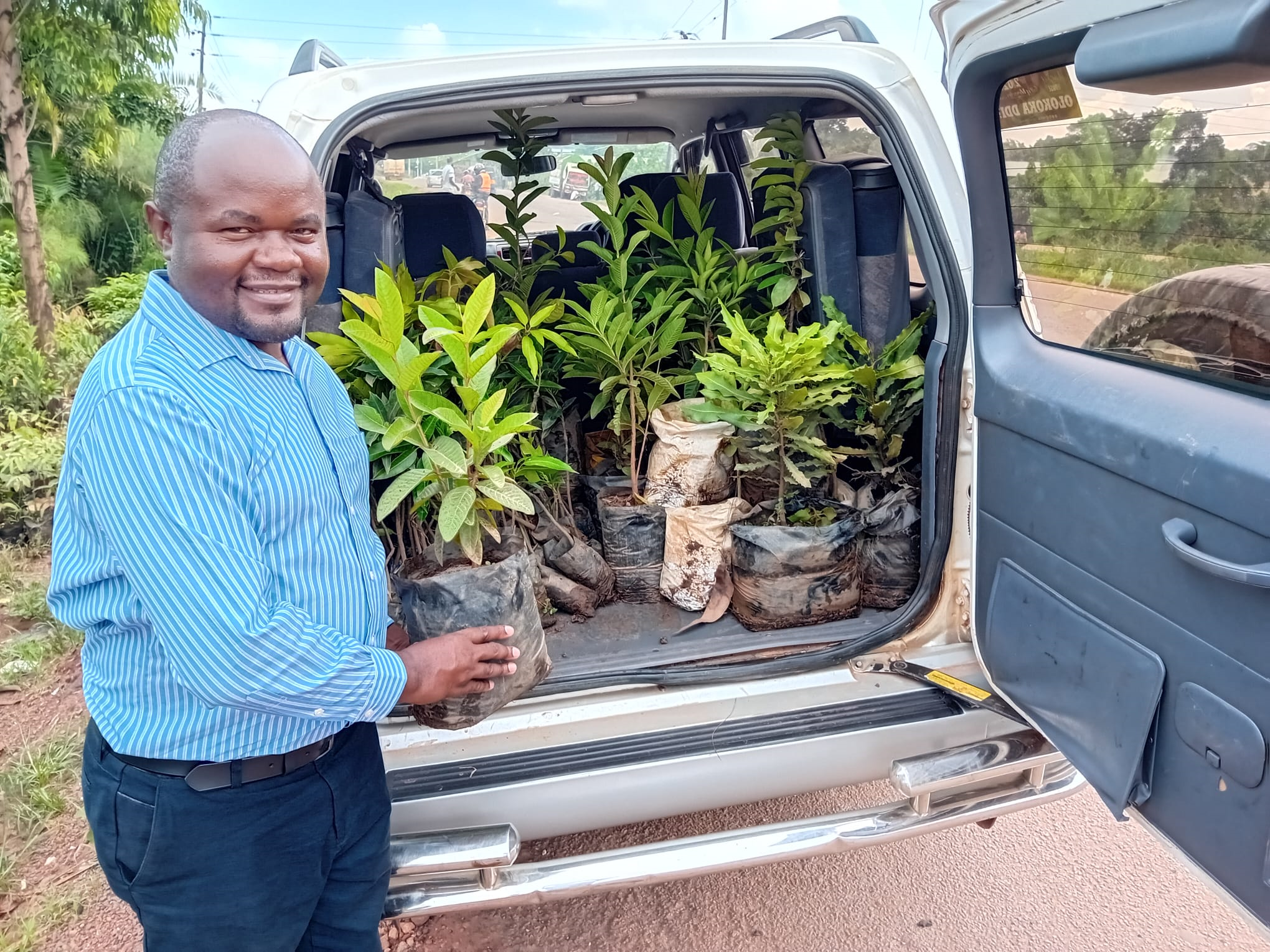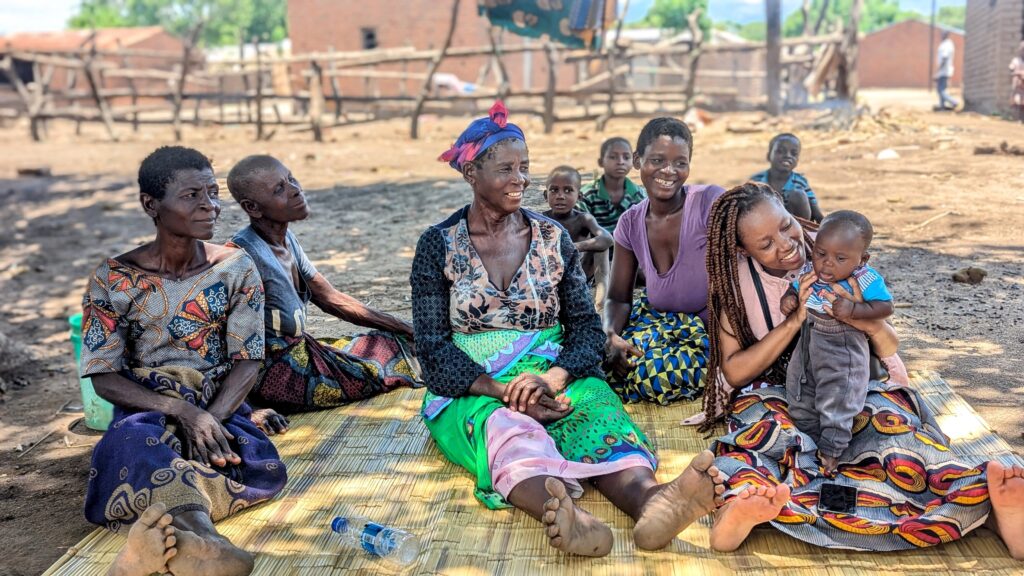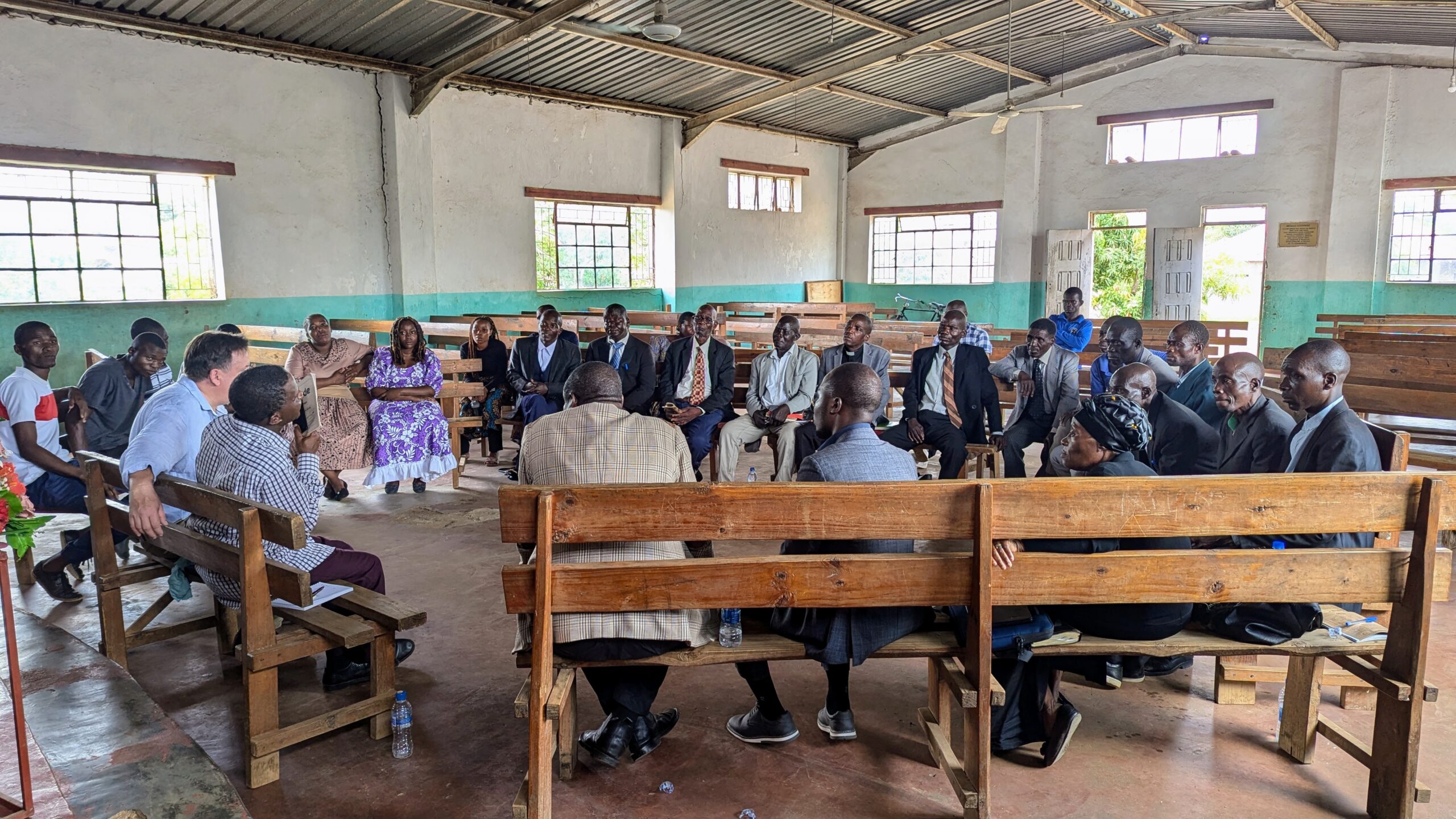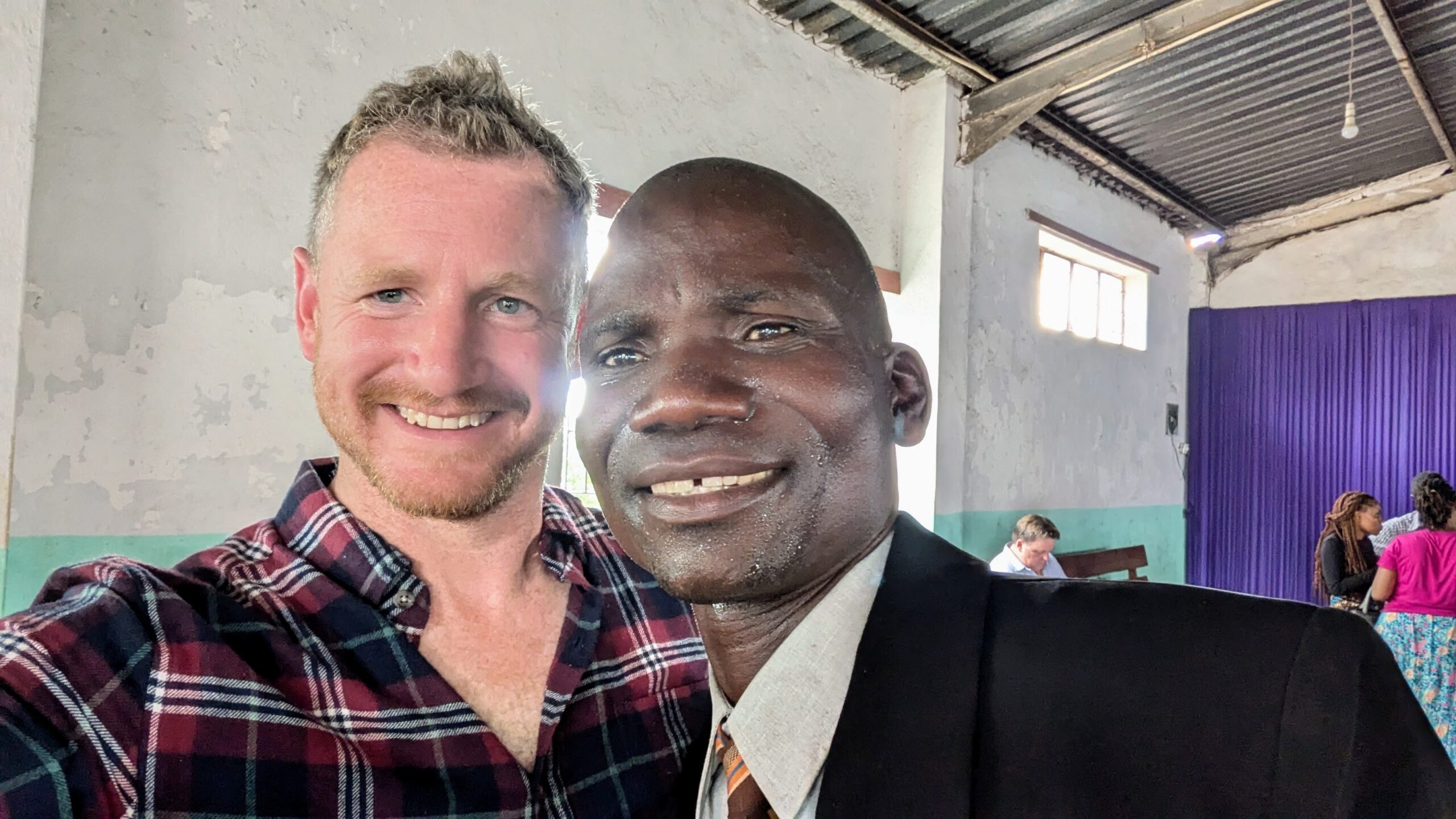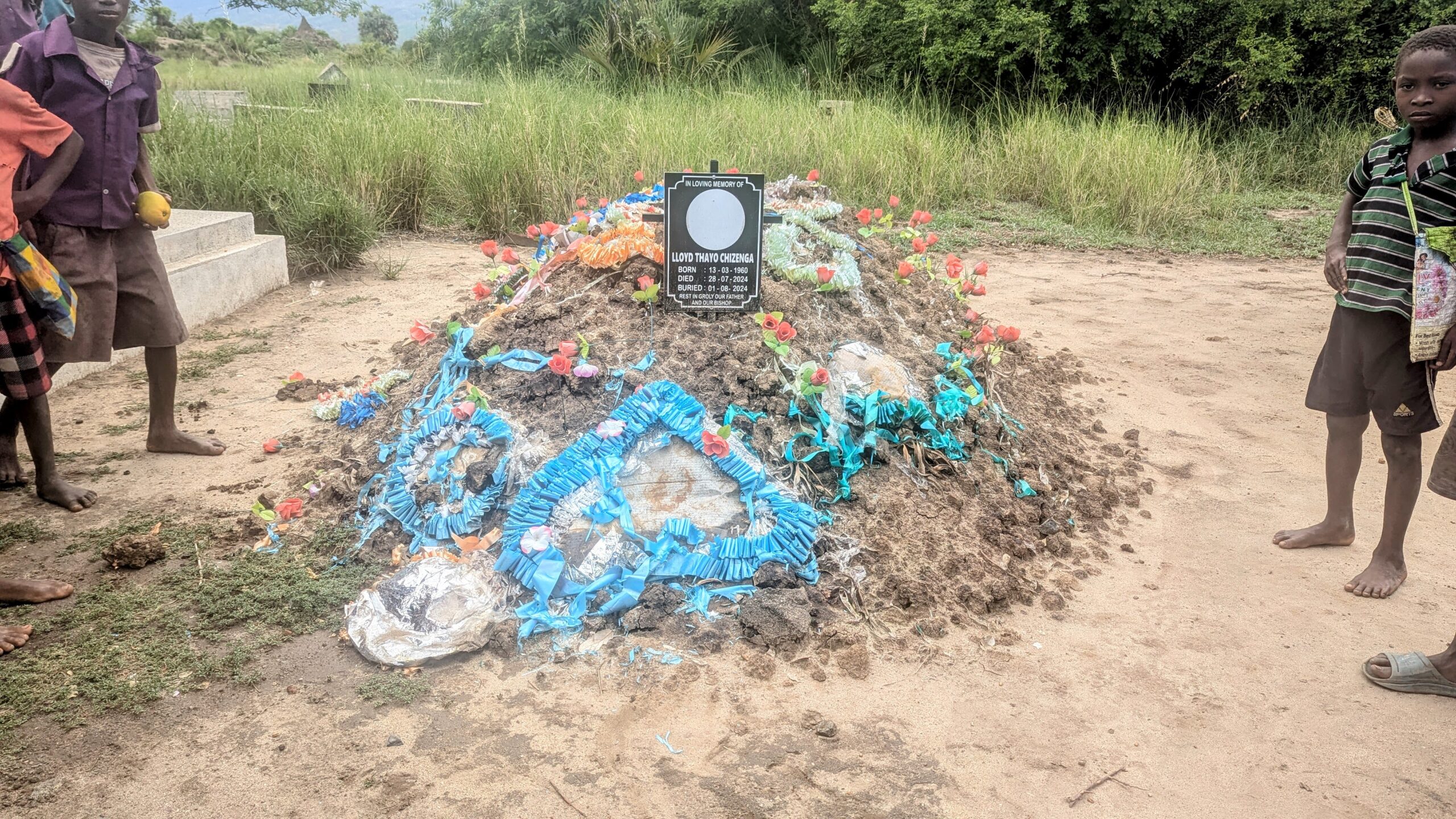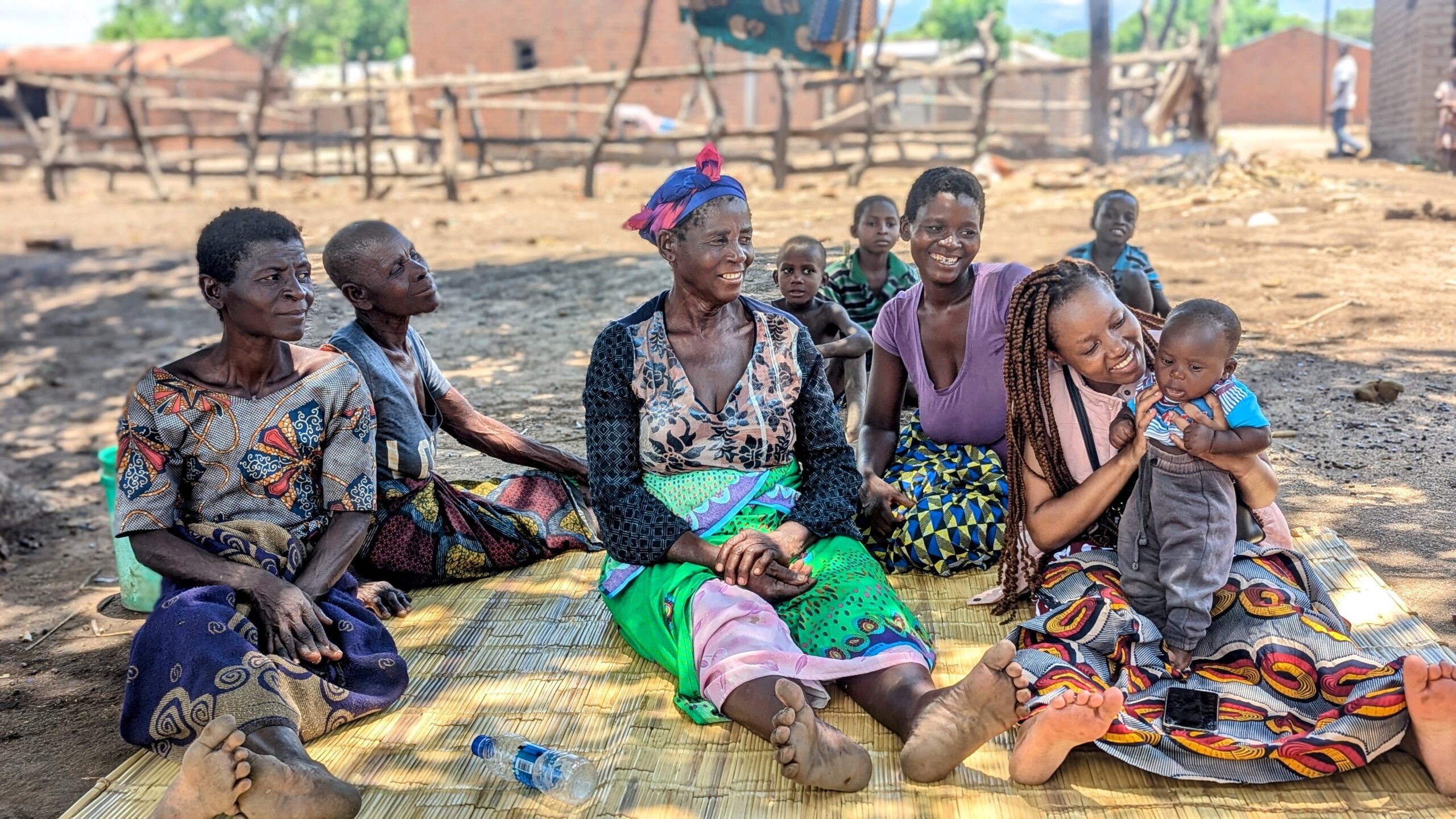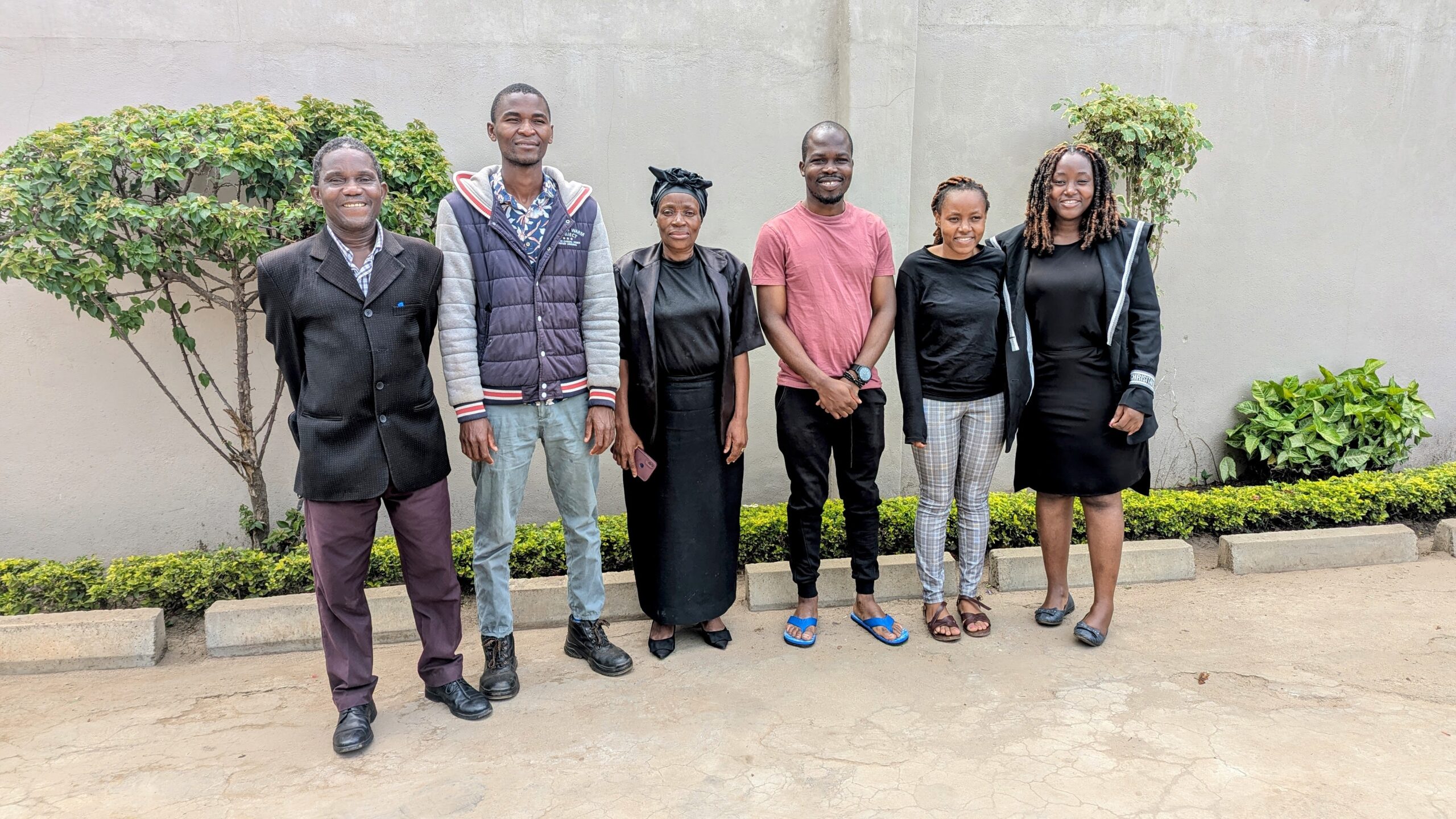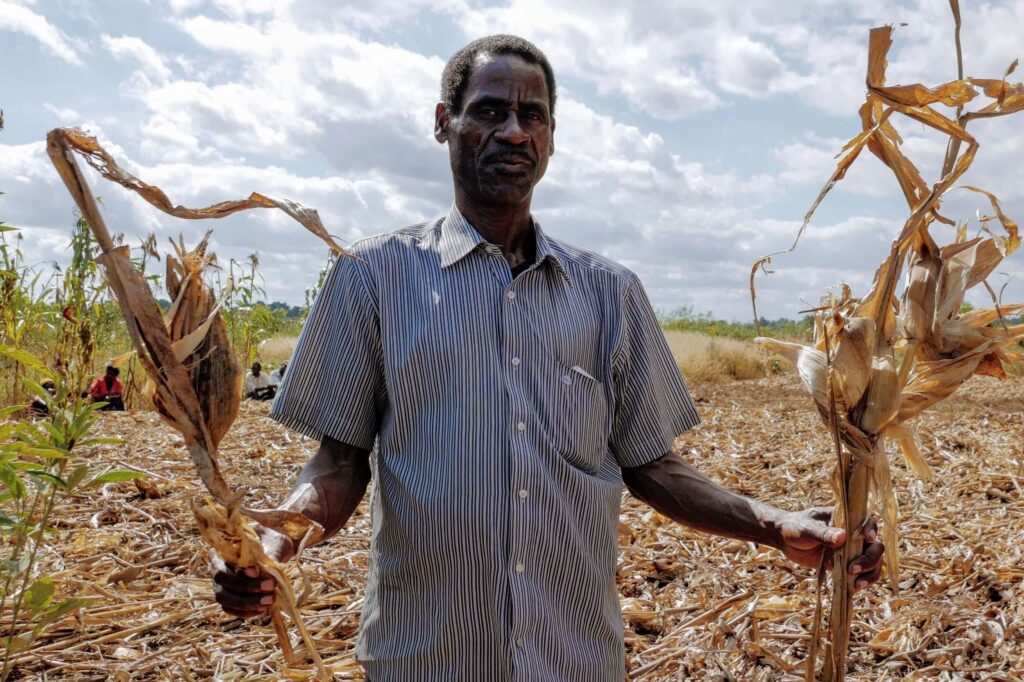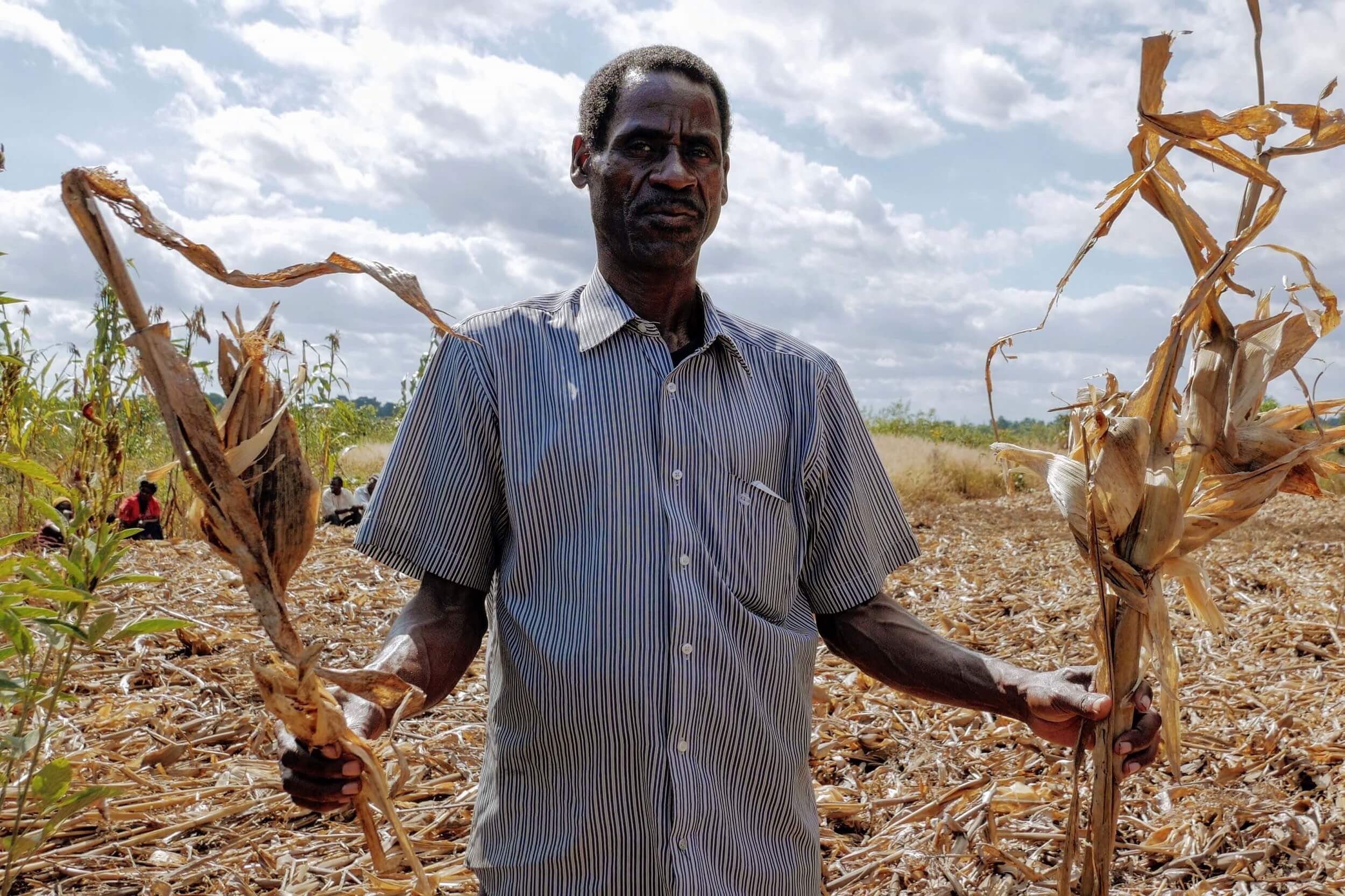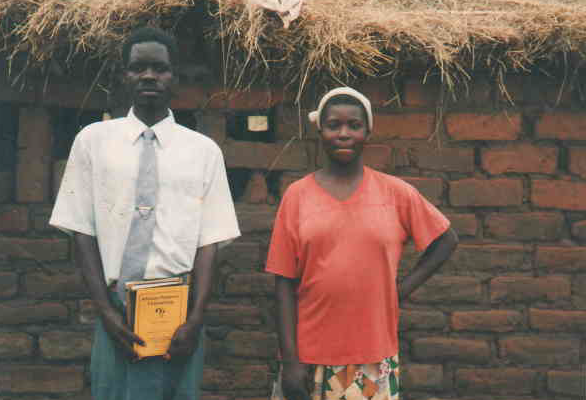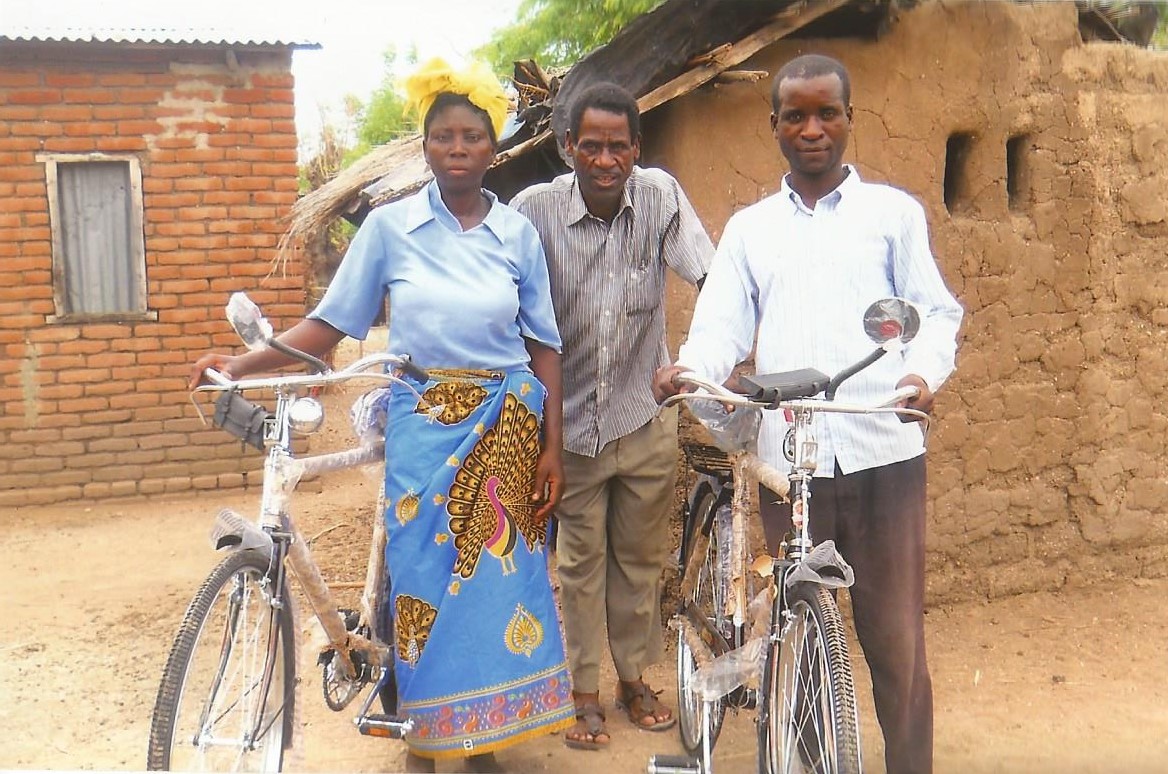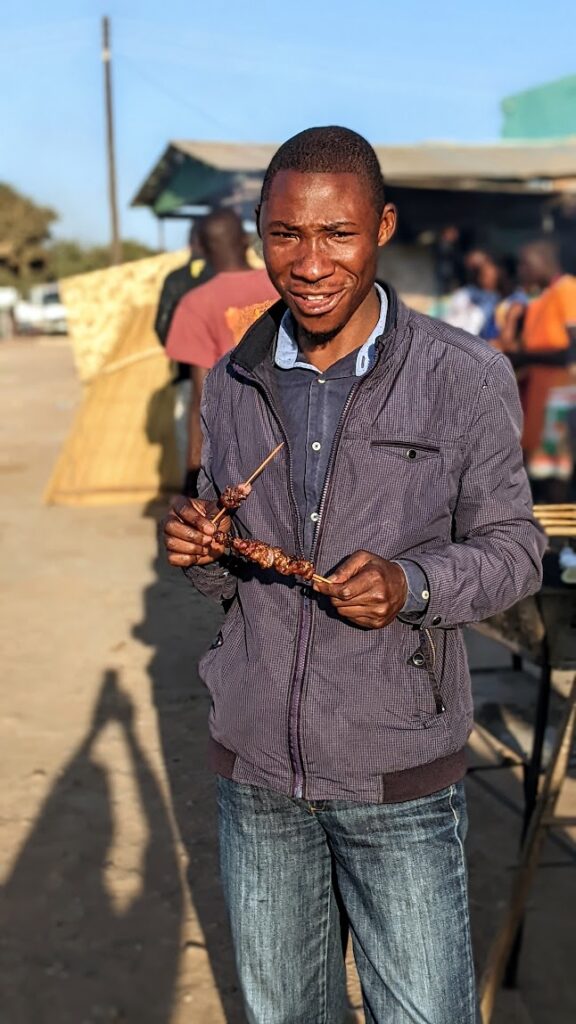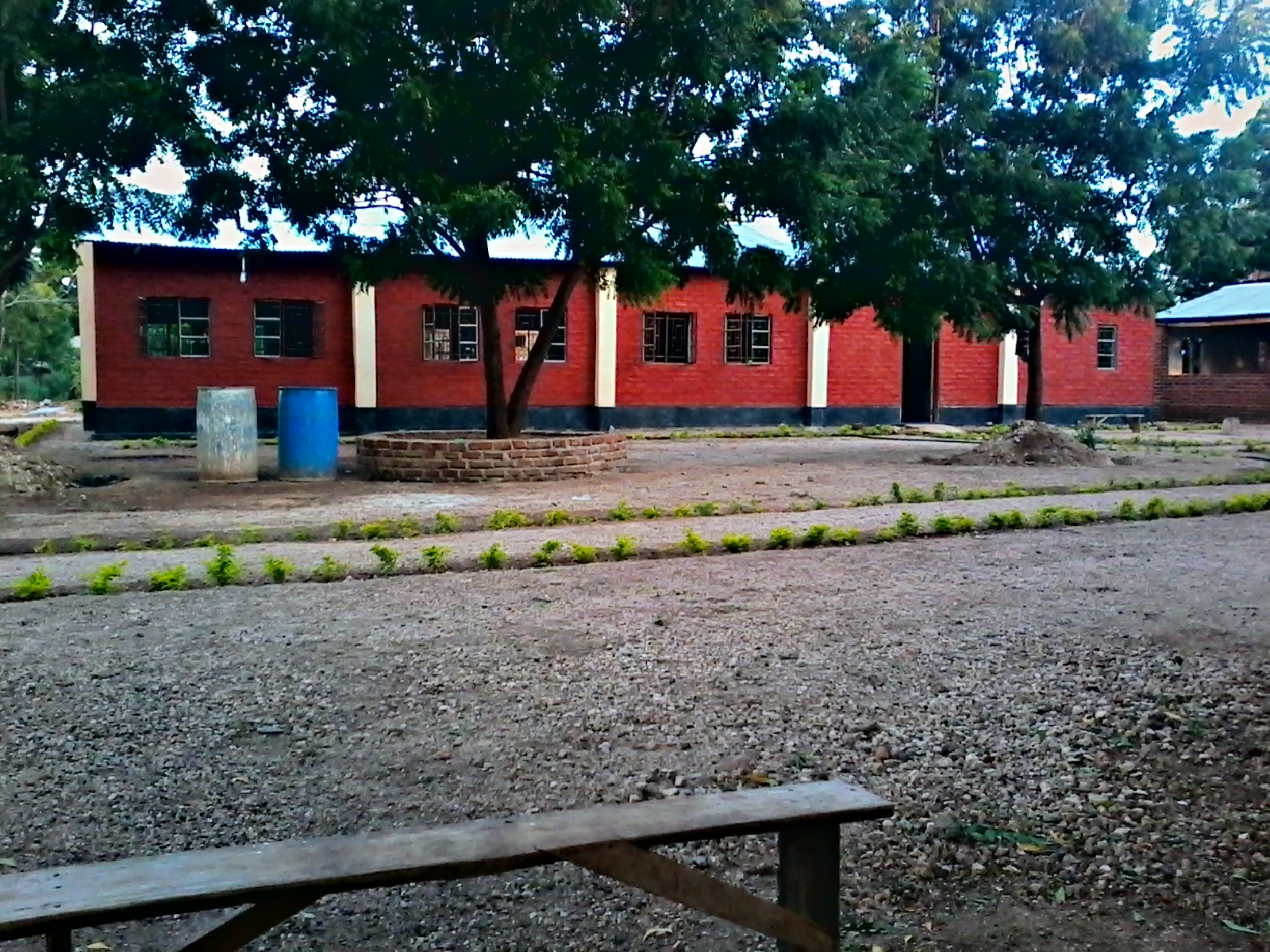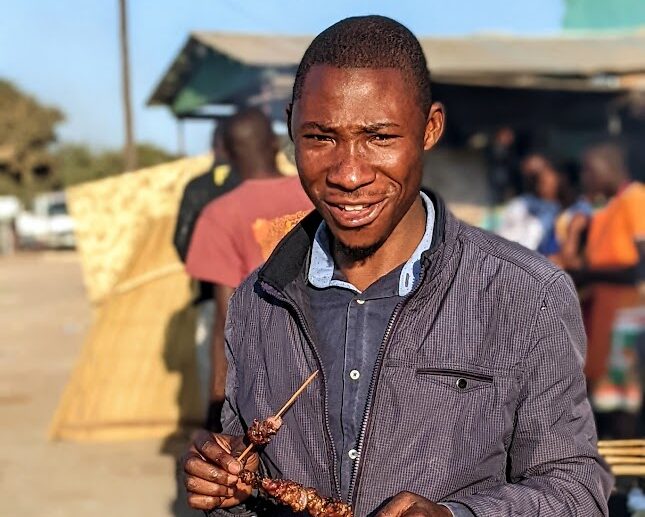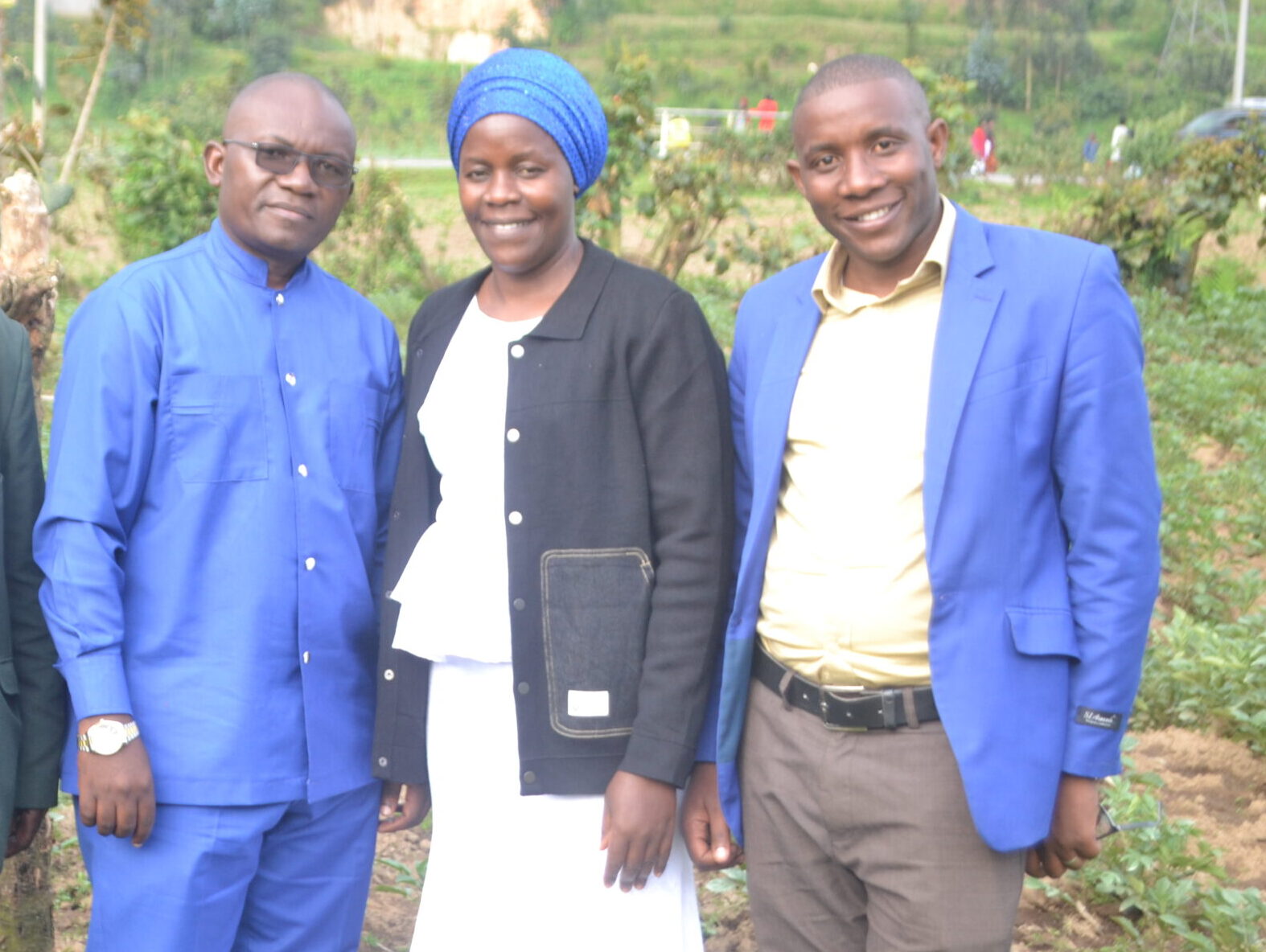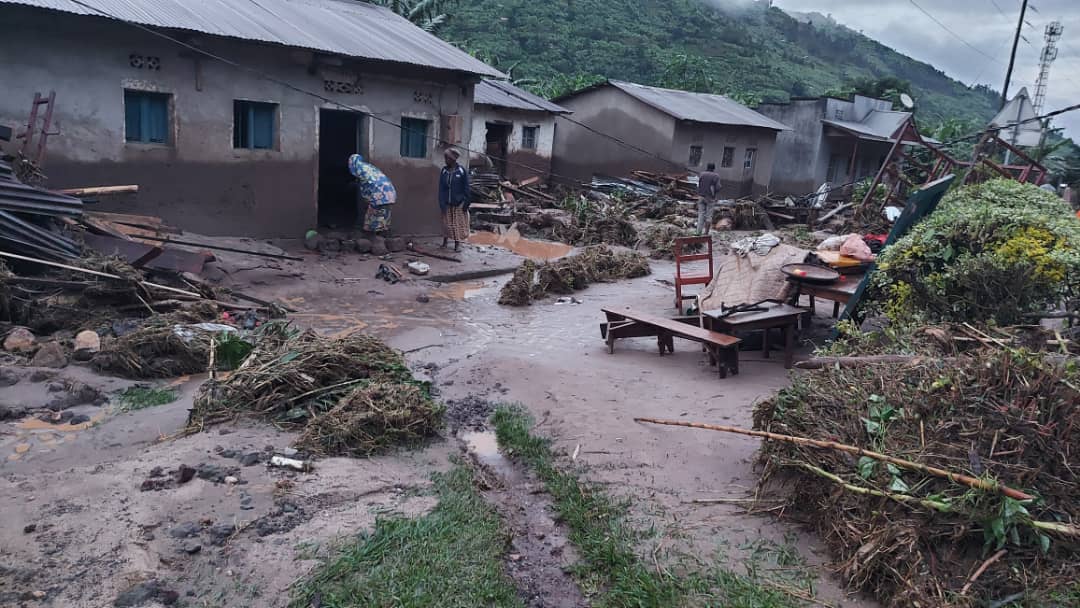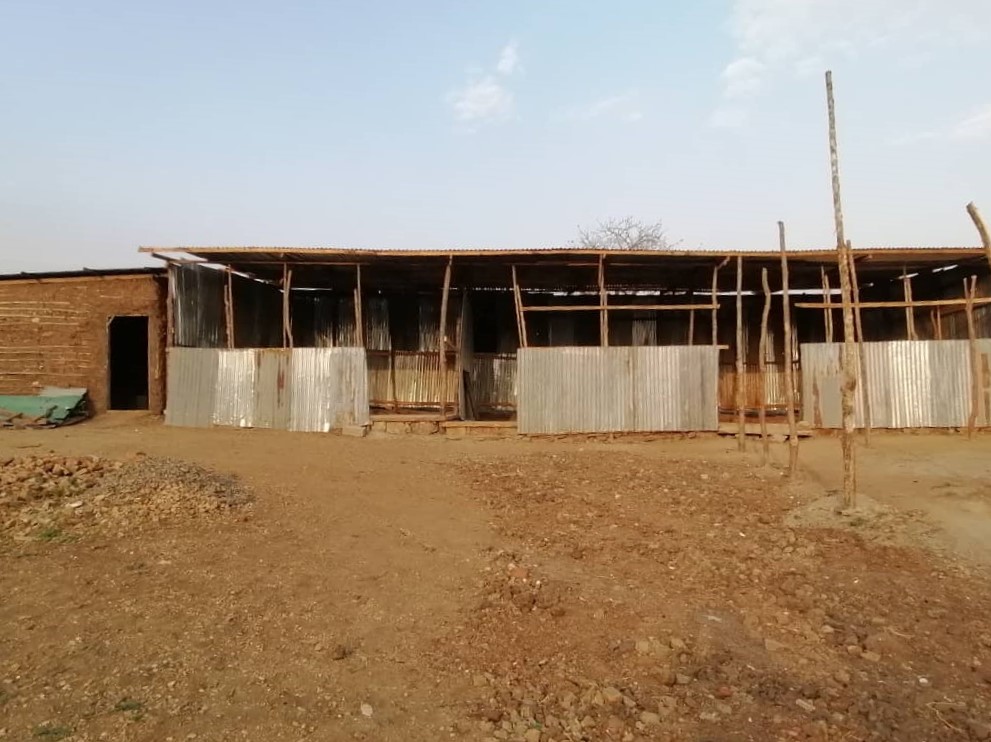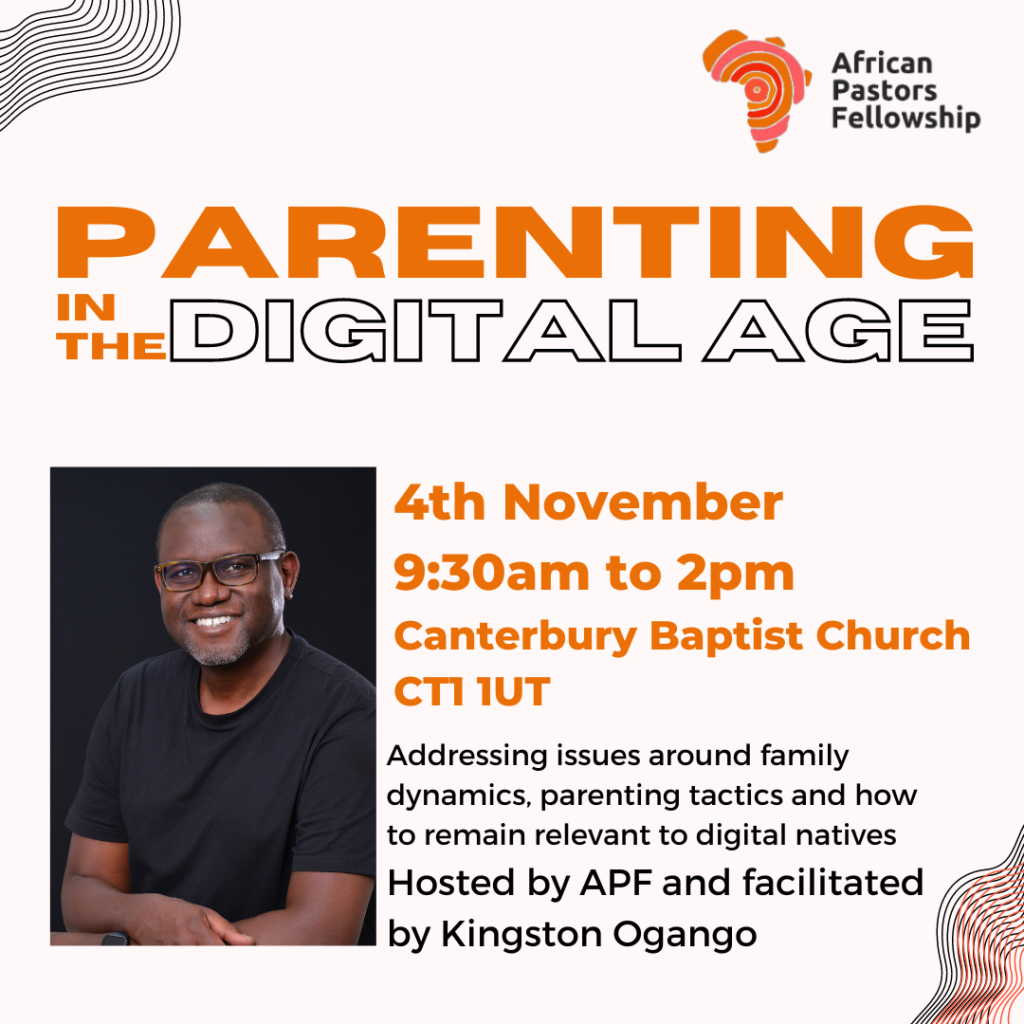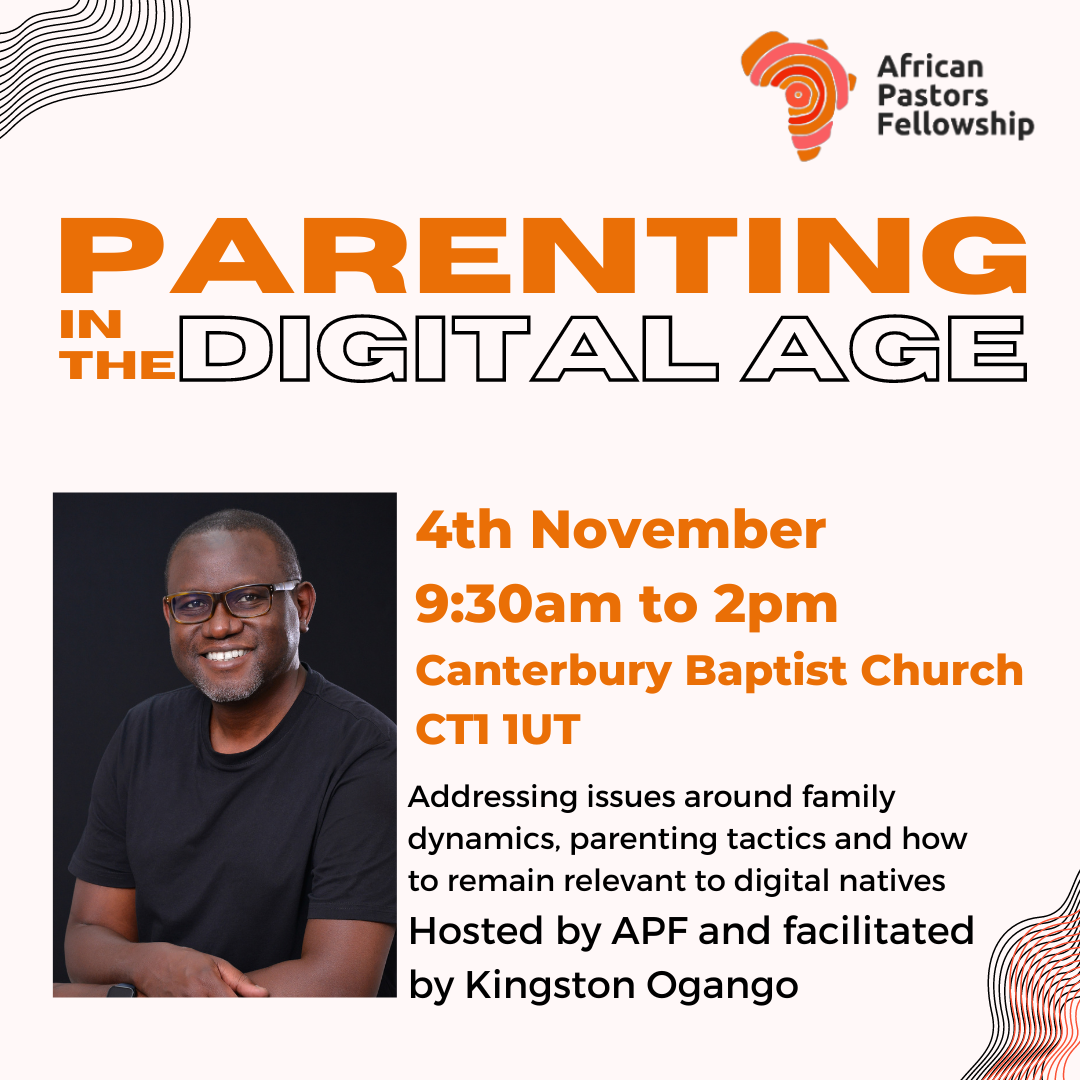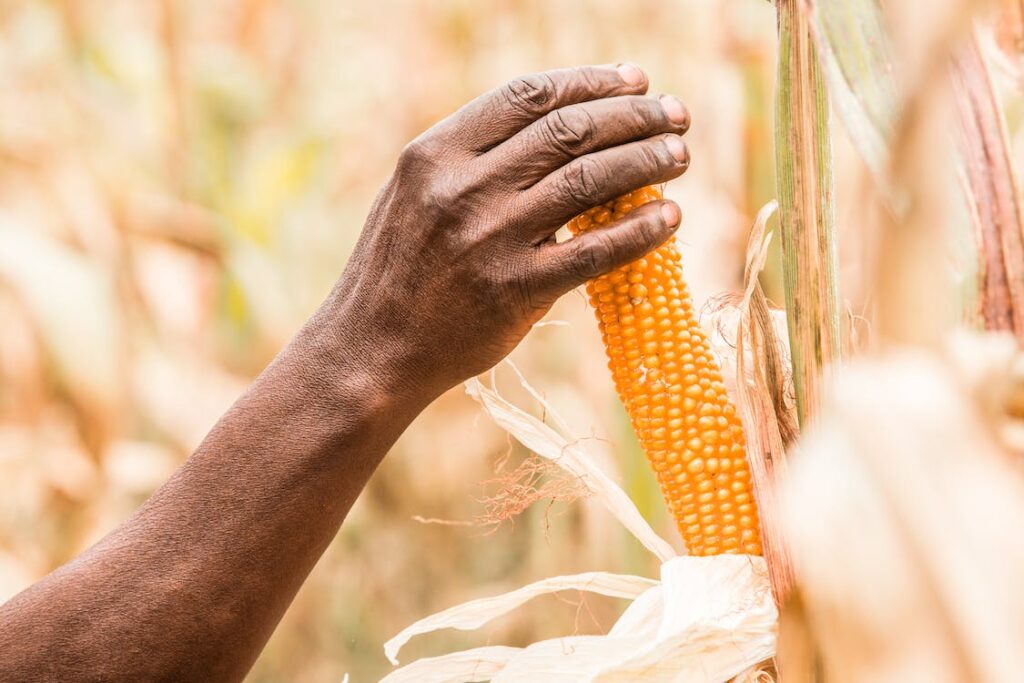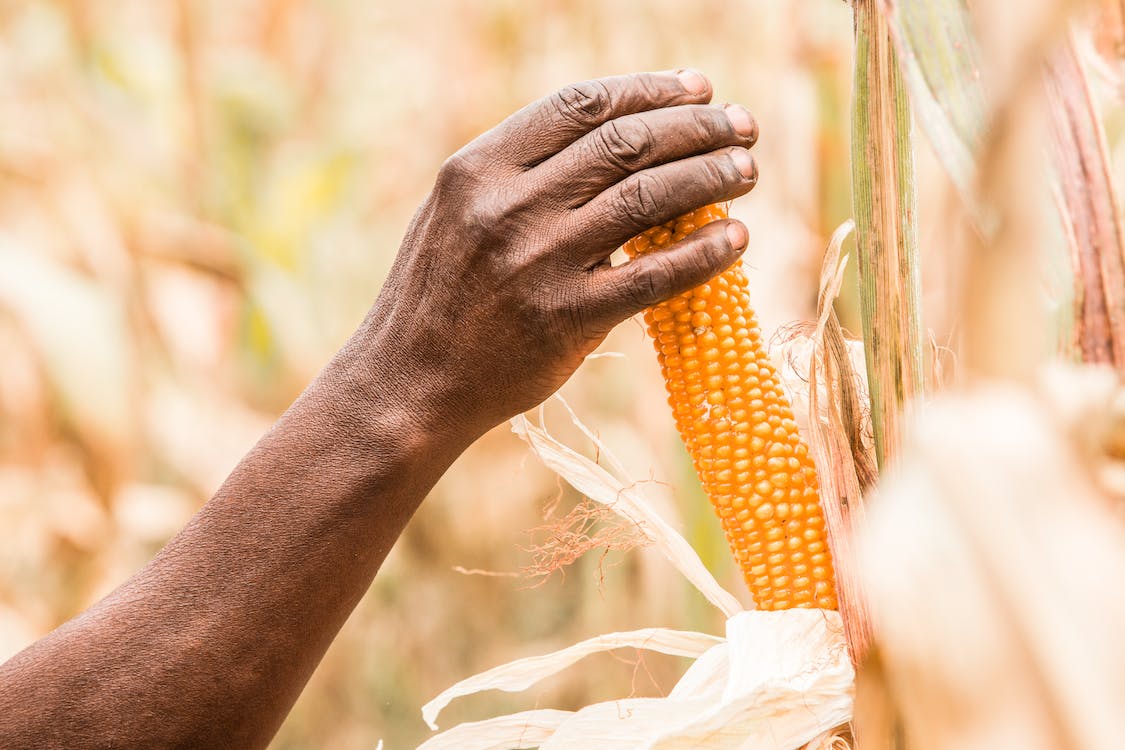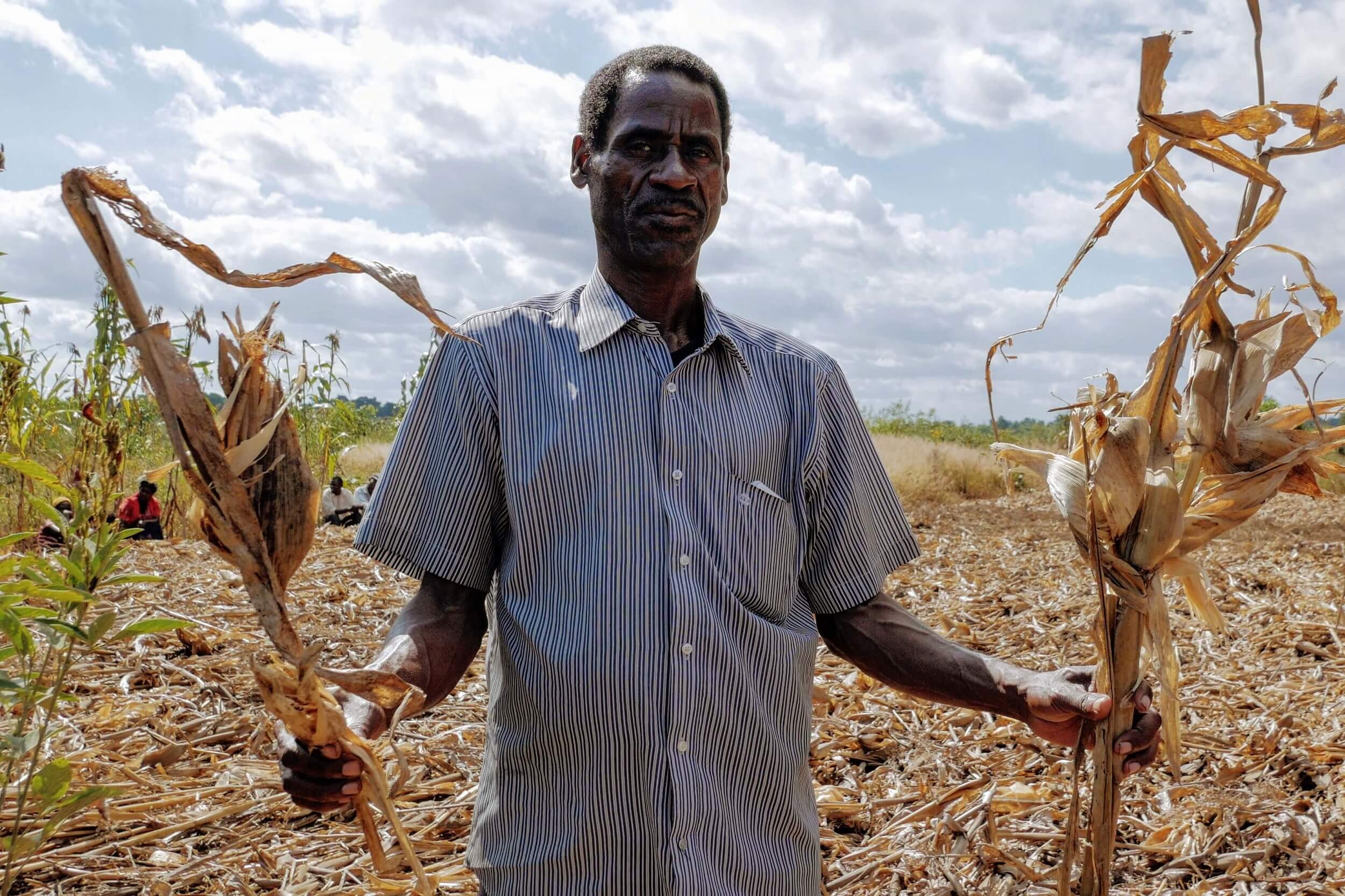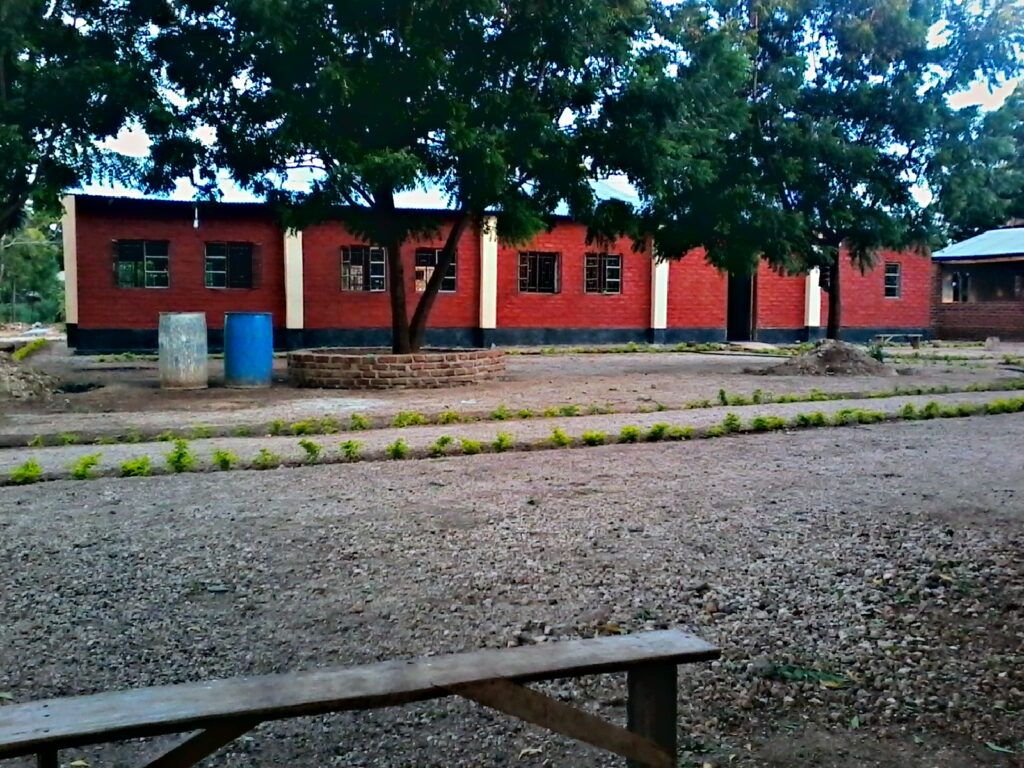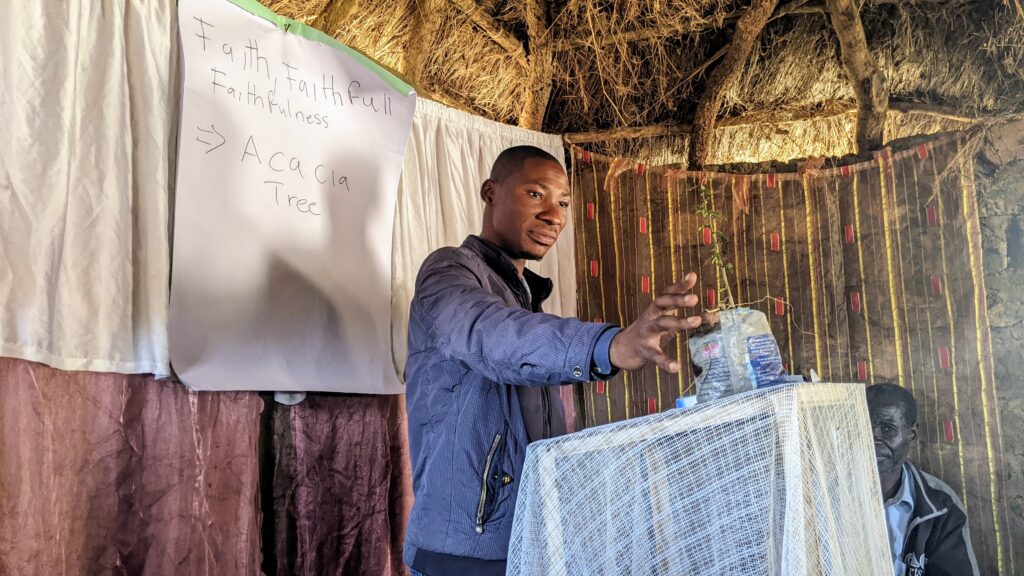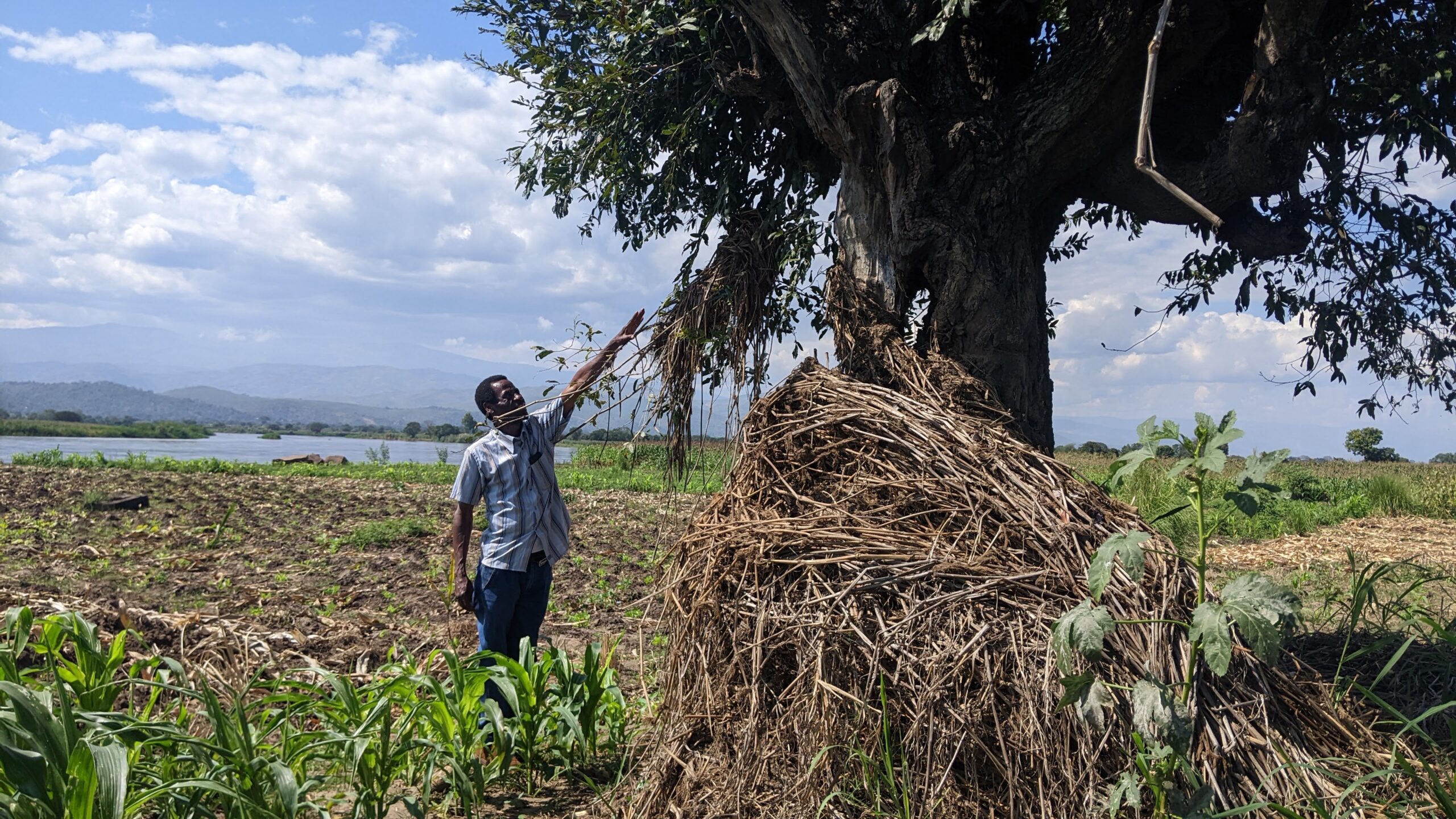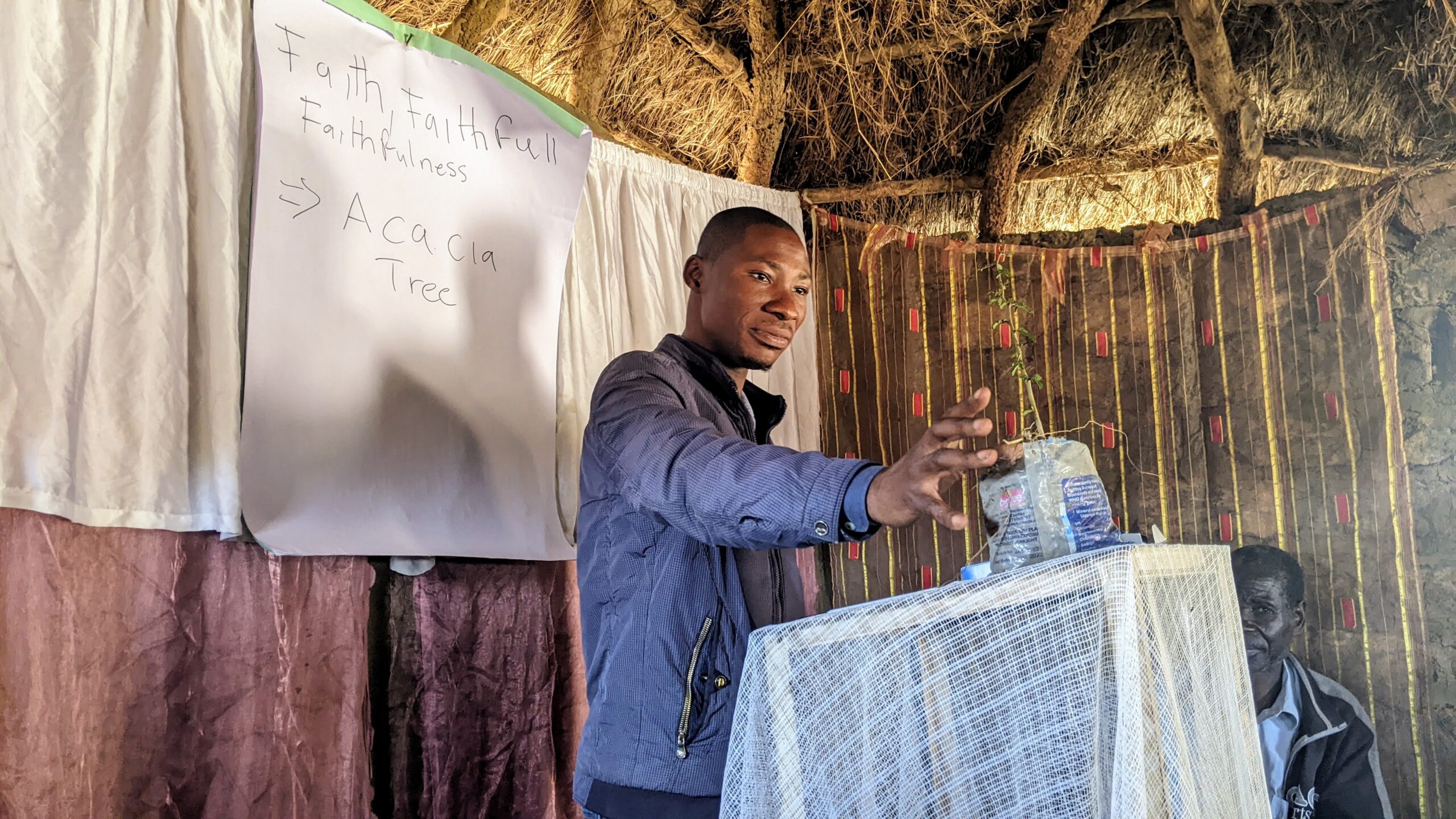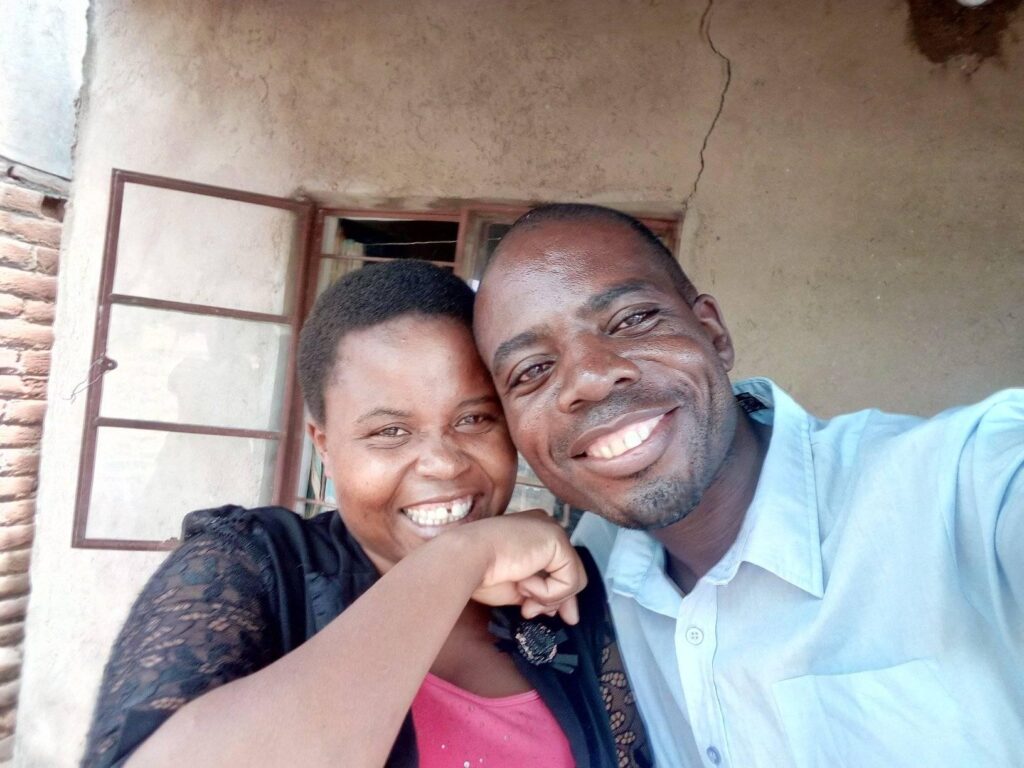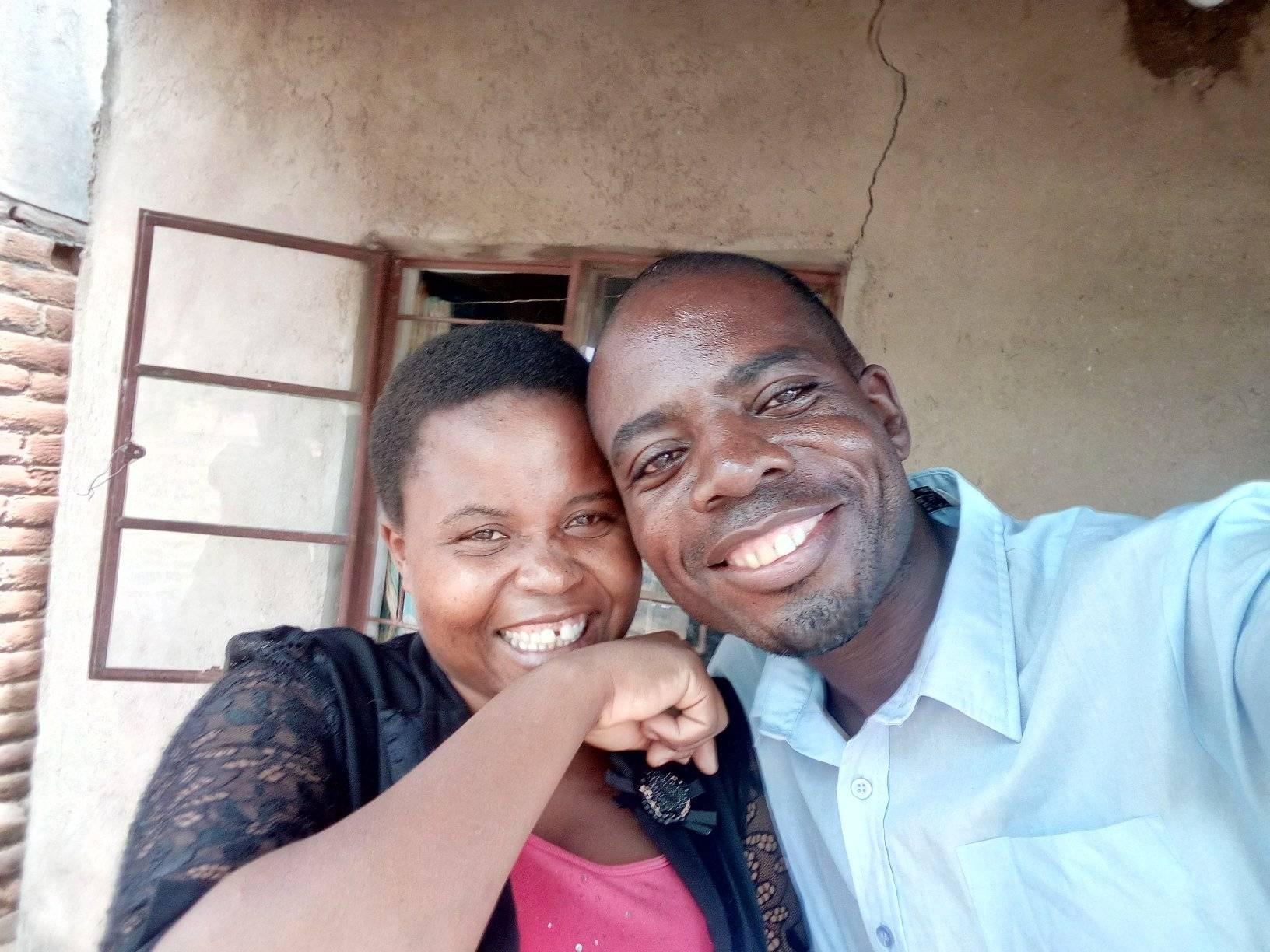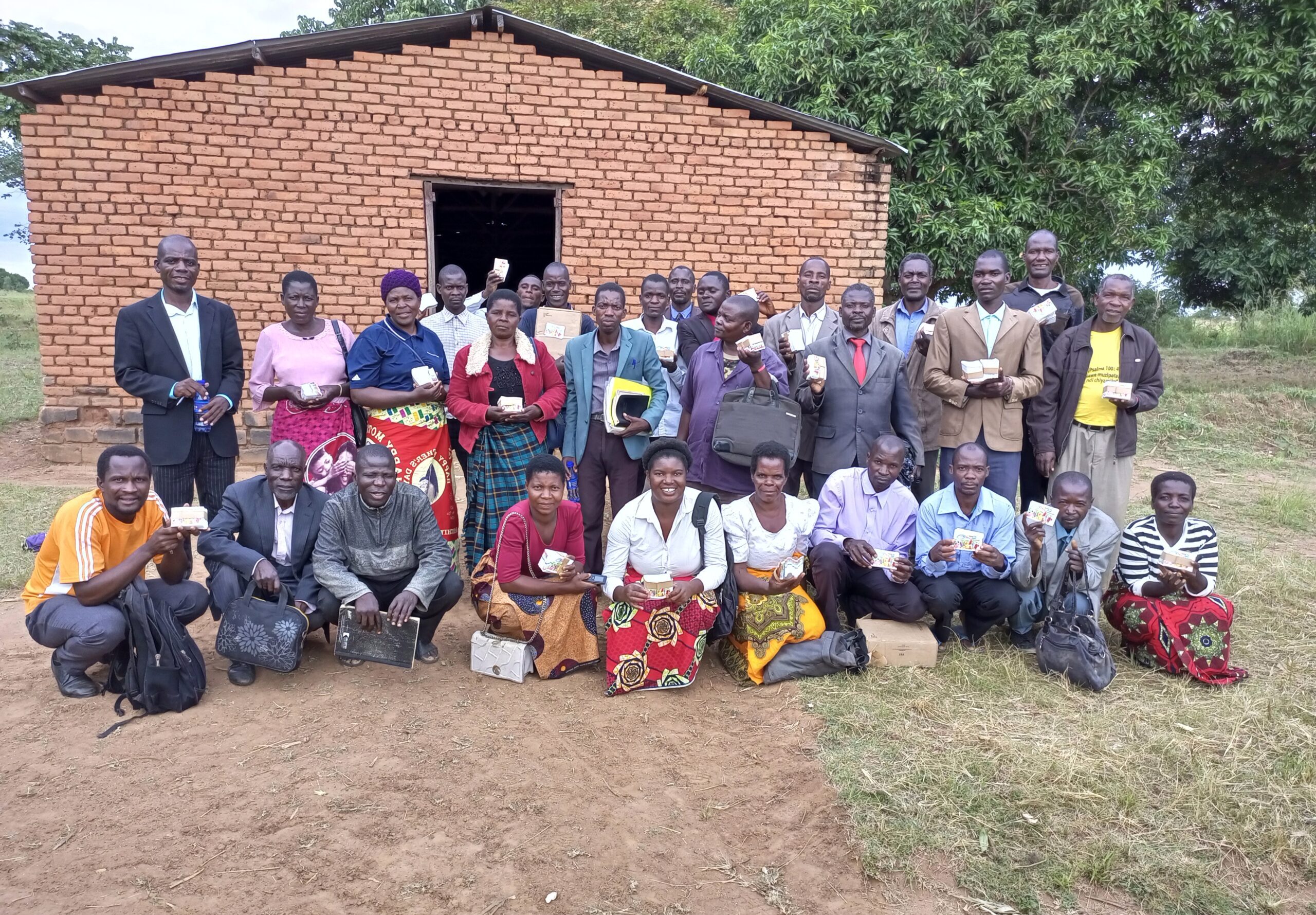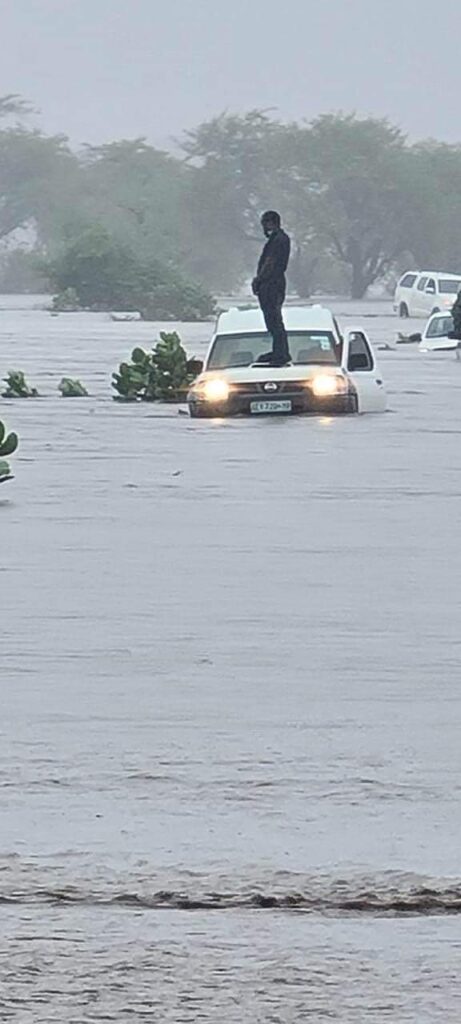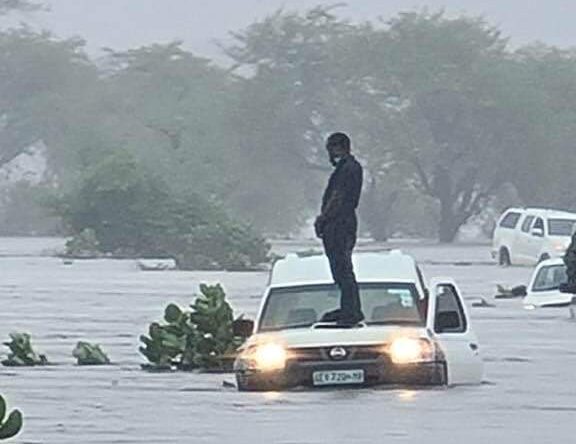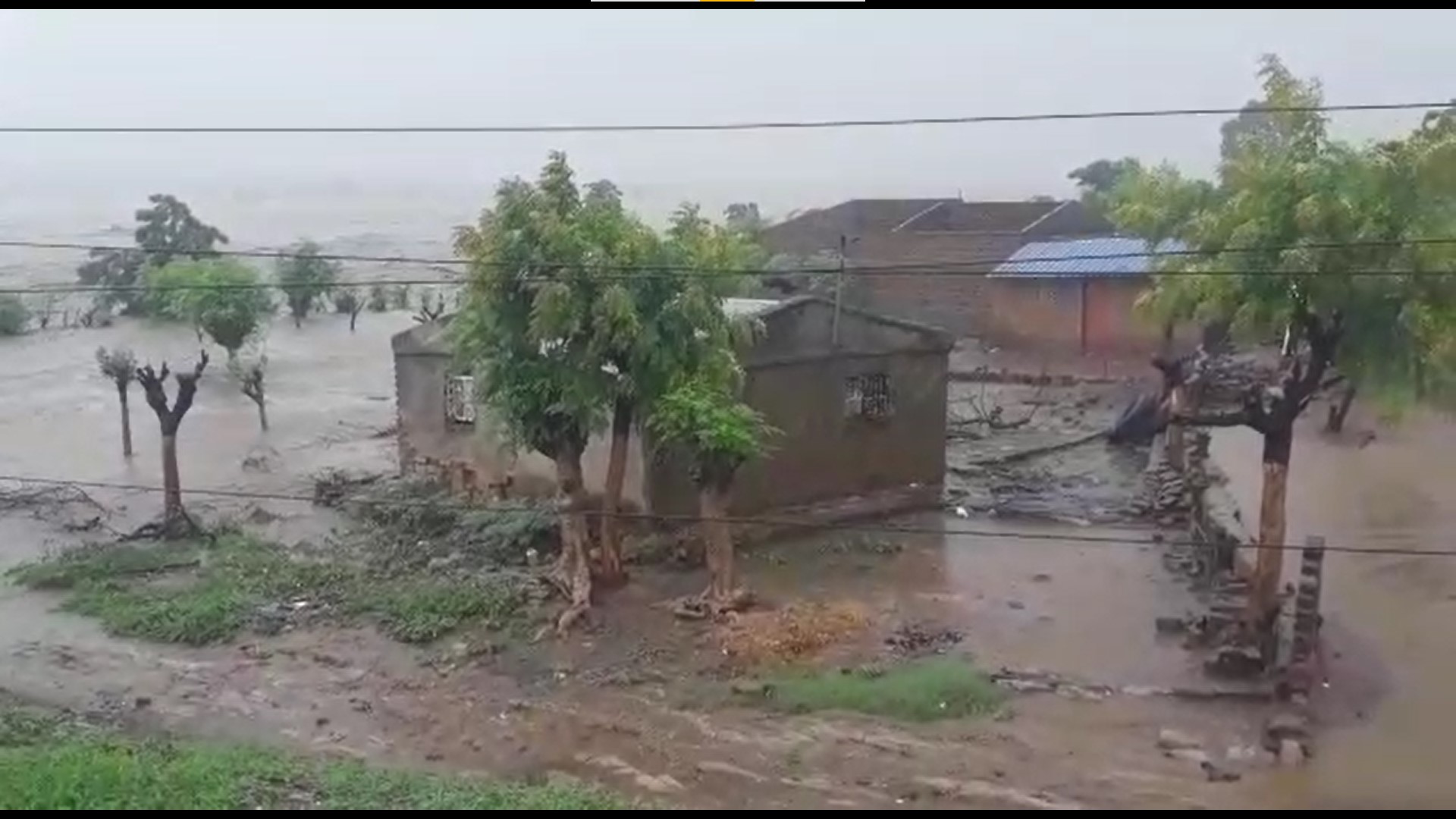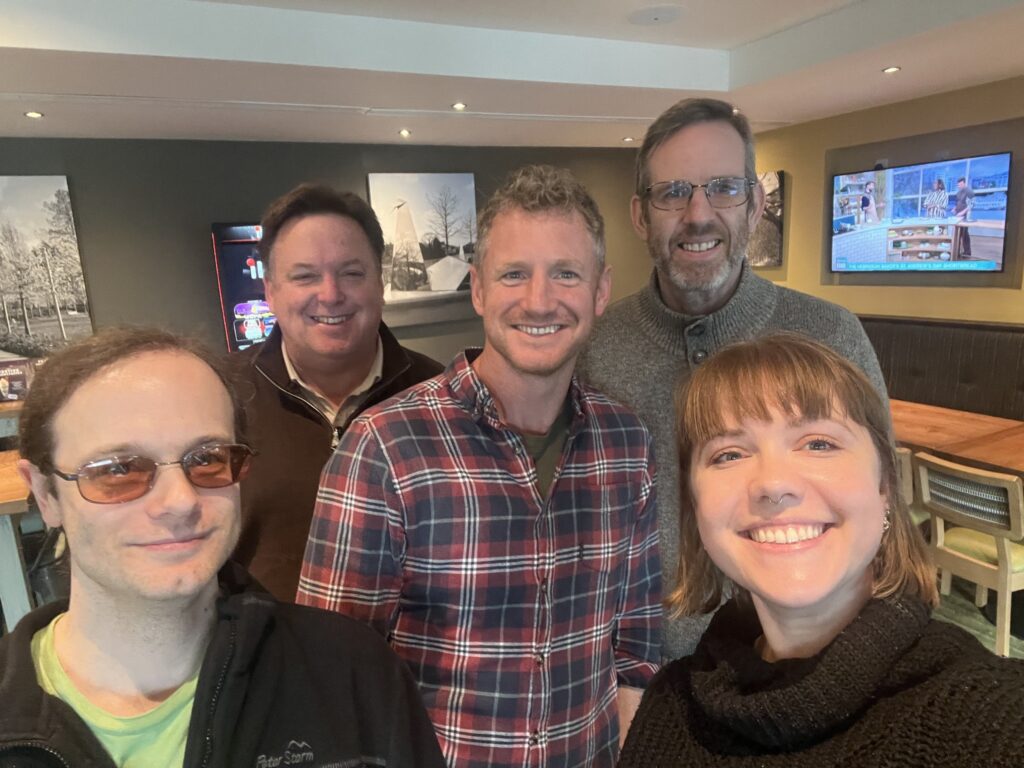
Read about some of the key highlights from recent months, offering a glimpse of how APF partners are training leaders, strengthening communities, and helping the church in Africa to flourish.
Malawi Youth Conference
In Blantyre, Johanna Chizenga from New Life Christian Church hosted a youth conference where part of the day focused on encouraging young Christians to download and install eVitabu, giving them access to thousands of excellent resources to support their churches, communities and home-life.

Johanna Chizenga introducing eVitabu to a youth conference in Malawi
UK Team Get-Together
The APF UK team of (pictured left to right) Jonathan, Dave, Geoff (who came straight from the airport from his latest visit to Africa), Martin and Hannah met near Heathrow to catch up and reflect on the last year as well as share ideas for the year ahead. Jonathan also showed the team around some exciting new updates he has planned for eVitabu.
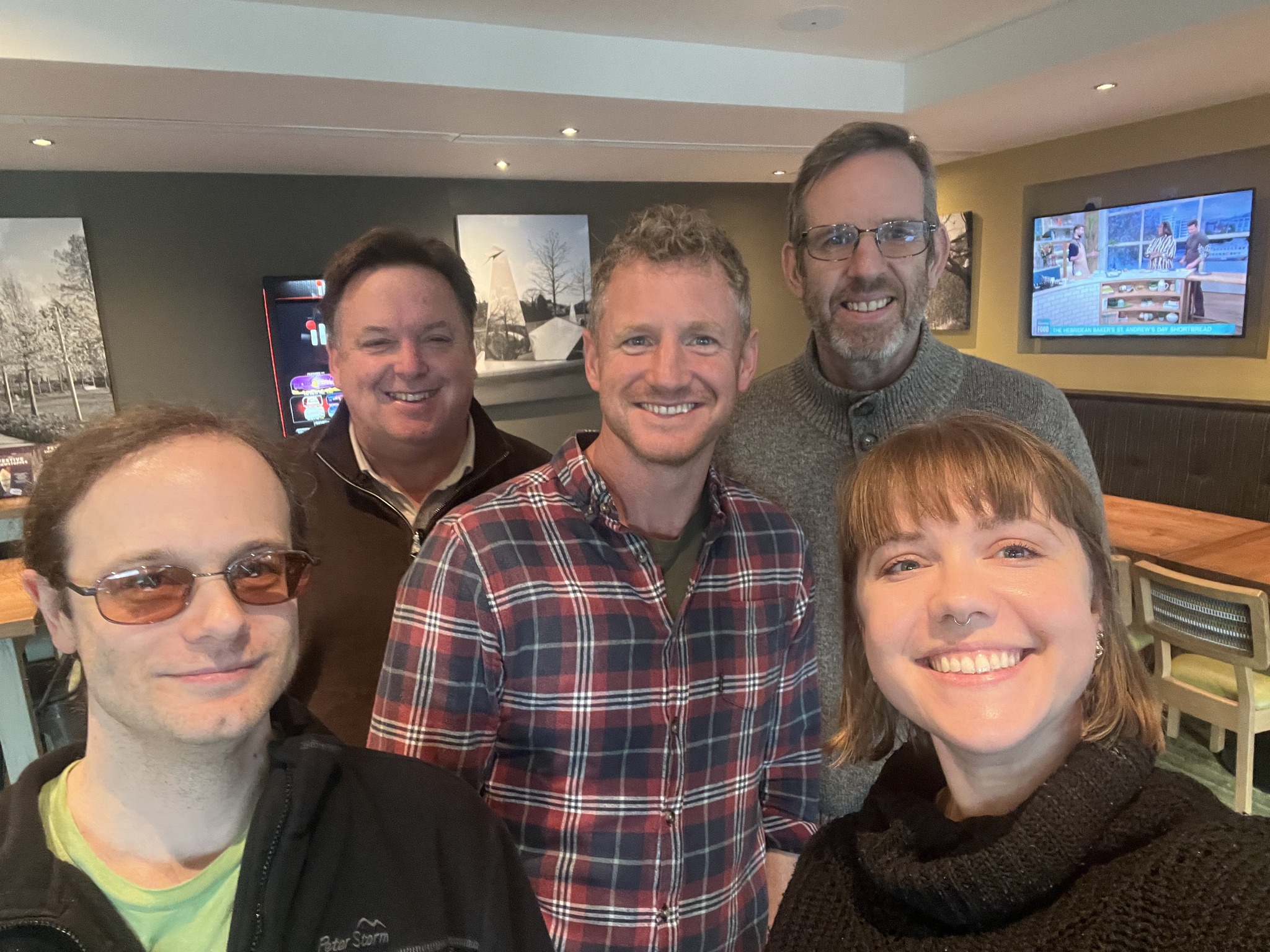
The APF UK team
eVitabu in South Sudan
Remoteness isn’t a problem for APF partner Daniel Deng Bol in northern South Sudan. Young leaders turned up from many miles around to attend an eVitabu workshop Daniel ran in November.
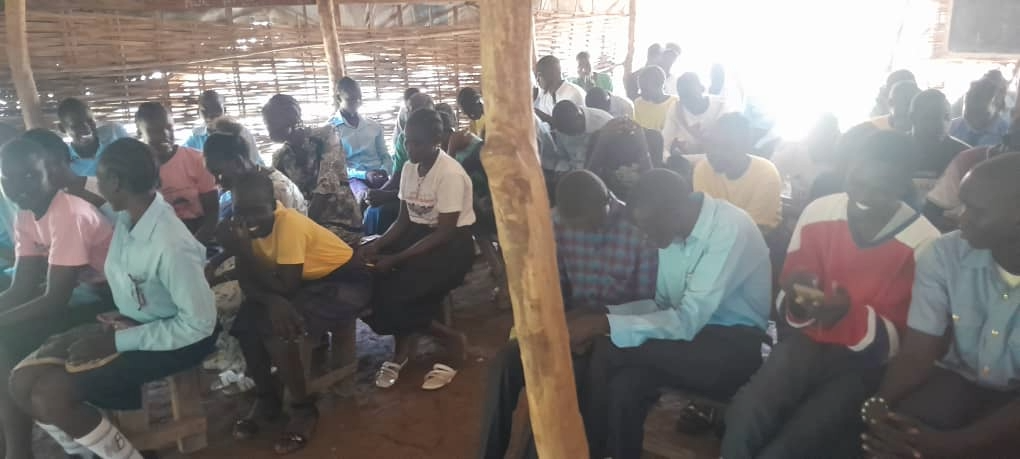
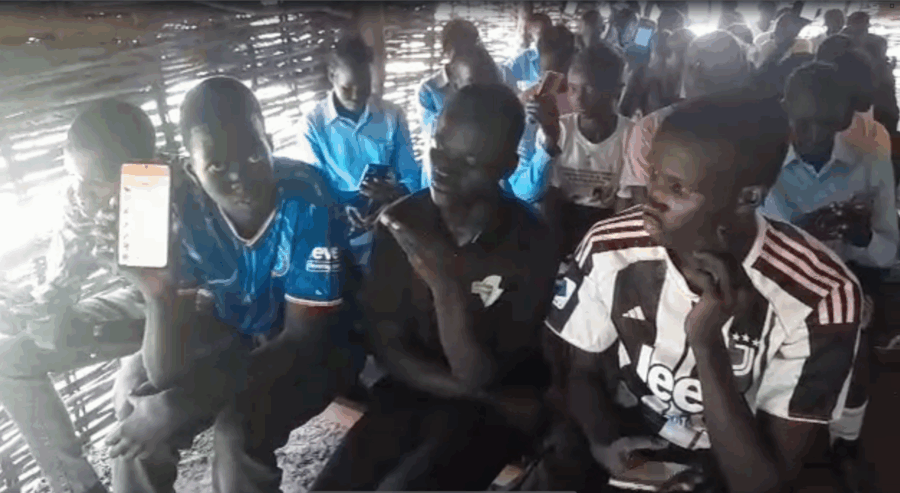
eVitabu training in South Sudan
Just Trees Appeal
Our Christmas Just Trees campaign has made a strong start, raising around £500 so far to help Walubo Jude plant trees in Uganda. We’re still taking donations so go to www.africanpastors.org/just-trees to make a Christmas gift that will last for generations.
